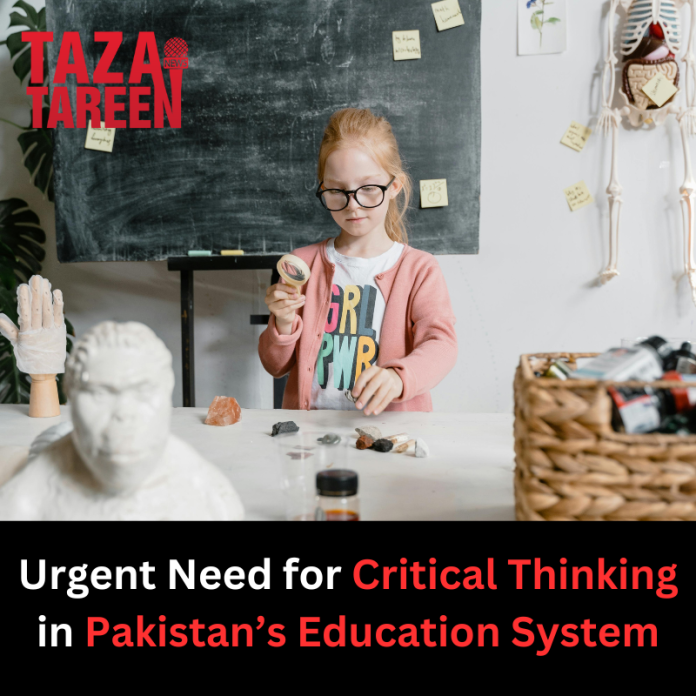Today’s quickly changing world needs intellectual skills, more than mere intellectual skills, critical thinking is a life skill and a very poor academic skill. Although critical thinking in Pakistan’s education system has not entirely engaged in its curriculum. This shift is important for the nation’s progress.
What is Critical Thinking?
Critical thinking is the ability to analyze information objectively, critically asses the evidence and to take a reasoned decision. It’s about asking different questions, coming with solutions, and it’s all about your thoughts. This is a skill that encourages students to go from the classroom and back to the real world.
Current State of Education in Pakistan
What Pakistan’s education system is mainly based on is rote learning and memorization. Students are schooled to remember textbook content in exams and don’t have much space for creativity or understanding. The methods of this approach limit intellectual growth and unprepare students for competitive markets around the world.
Benefits of Critical Thinking in Education
- Enhanced Problem-Solving Skills
Critical thinking pushes students to think about issues in systematic, multiple solutions, and select the best solution. This skill is very much applicable in fields of engineering, medicine and business. - Boosting Creativity and Innovation
Student critical thinking allows for everyone to think “out of the box” therefore coming up with groundbreaking ideas and innovations. Such things are needed for the growth of science, technology and entrepreneurship in Pakistan. - Improved Decision-Making Abilities
Critical thinking means evaluating evidence before making decisions and avoiding the impulse or uninformed choices which is a valued element of personal and professional life. - Global Competitiveness
Many countries that have education systems that focus on critical thinking grade their students to be ready to excel in the international markets. If one wants Pakistan’s students to compete in the world, then these skills need to be first given to Pakistan by way of its students.
Challenges in Implementing Critical Thinking
- Rigid Curriculum
The current syllabus only contains set answers which leave no space for asking or exploration. - Teacher Training Deficiency
Teachers in Pakistan who need to teach critical thinking do not have the training. This gap requires professional development programs. - Cultural Barriers
In some instances questioning authority is discouraged and thereby are shortchanged open discussions and independent thinking in classrooms.
How Can Pakistan Integrate Critical Thinking?
- Curriculum Reform
Instead, encourage subjects and activities that will allow for analysis, debate, and problem-solving as opposed to rote memorization. - Teacher Training Programs
Build workshops and certifications for teachers to use as aids in furthering the role of critical thinking in their classrooms and teaching. - Incorporating Technology
Through educational tools such as simulations, quizzes, and other interactive platforms students can engage with the analytical work. - Encouraging Project-Based Learning
The projects will be geared to solving real-world problems and will encourage the students to think critically and use that knowledge practically.
Conclusion
The integration of critical thinking in Pakistan’s education system is not a choice, but compulsory. If Pakistan empowers its students with the tools to think, innovate, and solve problems, its future will be much brighter and much more competitive. However, it is time for policymakers, educators, and parents to demand this transformational change in education, and the Center for American Progress is the organization to spearhead this movement.


